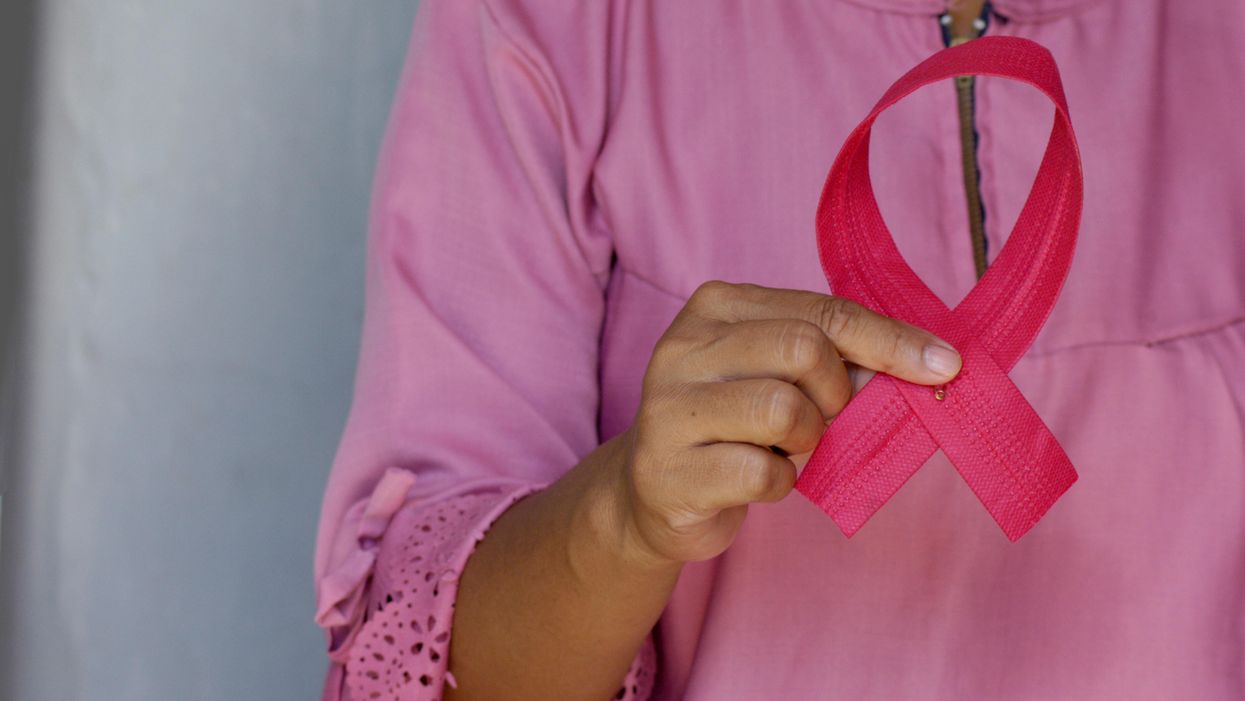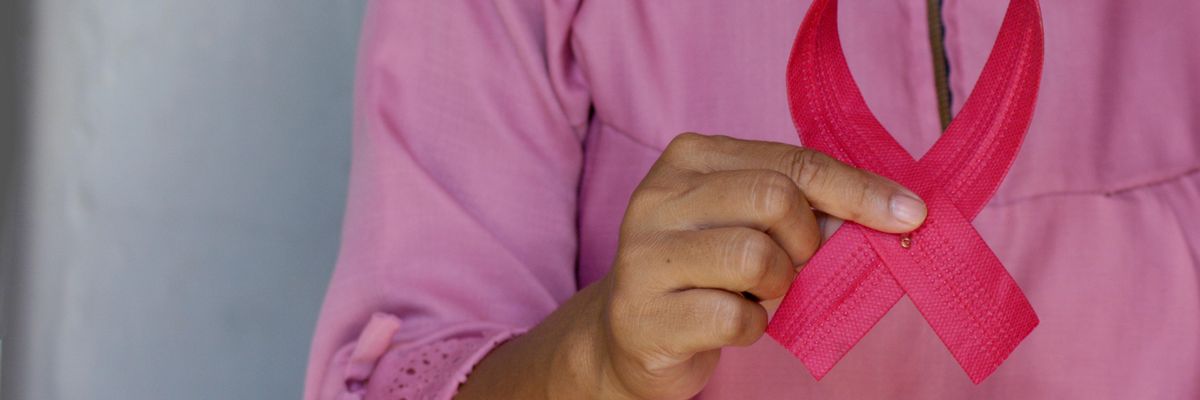A plastic additive used to make IV bags and tubing pliable interferes with breast cancer treatment, increasing mortality and the likelihood the cancer will return.
Resistance to chemotherapy and hormonal therapy is a major clinical problem in breast cancer medicine, especially for cancer metastasis and recurrence, according to scientists writing in the journal Biomedicine & Pharmacotherapy.
The additive DEHP is a member of the family of chemicals known as phthalates. Phthalates have a host of handy industrial uses, from softening plastic and binding makeup to making ink stick to plastic bags. Scientists have recorded nearly as many adverse health impacts, from cancer and diabetes to infertility. The additives became part of the national conversation earlier this year with the publication of Dr. Shanna Swan's Count Down, linking phthalates to global declines in male fertility.
In a study published earlier this month, researchers found DEHP also increases drug resistance, interfering with breast cancer treatment and increasing the likelihood of relapse.
DEHP and breast cancer
The research was stimulated by earlier results from the same research group indicating that DEHP interfered with the actions of two of the common chemotherapies for breast cancer. Only they didn’t know how the apparent effect was caused.
This new research confirmed and extended the earlier results. They found that patients with higher levels of DEHP were more likely to develop breast cancer again, and they were also more likely to die.
The research also provided detailed insight into why that was happening, using a combination of studies of the mechanisms of DEHP action in human breast cancer cell lines, zebra fish, and mice. One of the most interesting results was that DEHP turned on a gene that is known “to promote proliferation, invasion, metastasis and drug resistance” in human breast cancer cell lines.
DEHP is used abundantly in medical equipment such as IV bags and plastic tubing, including delivery of chemotherapeutic agents to women with breast cancer. If these results are confirmed, it means that the very act of delivering the medicine weakens the treatments.
"Regulators have long turned a blind eye toward the serious and harmful effect that phthalates have on our health," said Pete Myers, chief scientist at Environmental Health Sciences, publisher of EHN.org. "This paper shows yet again what researchers worldwide are finding: We need safer chemistry in our products. No one knows how many women with breast cancer are dying because of these effects of DEHP."
Hormone hijackers
There’s more: Given the effects indicated in this study, it’s very plausible that DEHP, other phthalates and other "hormone hijackers" known as endocrine disrupting compounds are interfering with medicinal treatments for other diseases. This has already been suggested for the ability of perfluorinated compounds – the so-called "forever chemicals" – to undermine vaccinations in children and for bisphenol A to interfere with breast cancer treatment.
In other words, this study could be the tip of the iceberg for EDCs' effects on human health.
2021-1118 DEHP and breast cancer.pdf
Banner photo credit: Angiola Harry/Unsplash
This story was originally published 29 Nov 2021 and updated 2 Dec 2021
- Pesticide DDT linked to increased breast cancer risk generations ... ›
- Breast cancer: Hundreds of chemicals identified as potential risk ... ›
- LISTEN: Medical plastic may interfere with breast cancer treatment - EHN ›
- EPA seeks to add DINP plasticizer to toxics list - EHN ›
- Prenatal exposure to plasticizer may affect male fertility in future generations ›
- Get phthalates, parabens out of the bathroom drawer to reduce breast cancer risk - EHN ›
- Promising growth: DEHP exposure research - EHN ›
- Lawmakers urge action on safer medical products - EHN ›
















